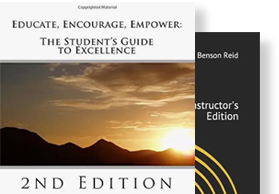Blog

Understanding the C.A.R.D.S. You Are Dealt: A Framework for Client-Facing Professionals
Here at AGG, we believe creating strategies that address the unique needs of individuals from diverse backgrounds and situations is vitally important. The CARDS (Counselor, Advocate, Role Model, Disciplinarian, and Surrogate Parent) Framework emphasizes the importance of addressing these needs through reflection and introspection prior to serving individuals from marginalized circumstances. By through self-analysis, practitioners gain deeper understanding of their own social, cultural, emotional, and racial experiences which allows them to recognize how these constructs may influence their perspectives, biases, and interactions with others.
The CARDS method, a groundbreaking Framework, aims to train practitioners to serve as counselors, advocates, role models, disciplinarians, and surrogate parents when working with individuals from various experiences and settings. The CARDS method prioritizes the well-being and development of clients, ultimately contributing to empowered citizens and a more inclusive society.
By engaging in this reflective work, practitioners become aware of their own values, beliefs, prejudices, and privileges. This self-awareness is crucial because it enables practitioners to recognize potential biases that may unconsciously impact their interactions with clients. It also helps them identify any personal triggers or emotional responses that may hinder their ability to empathize and understand clients from diverse backgrounds.
Moreover, the CARDS Method encourages practitioners to examine their own experiences of marginalization or privilege. This examination facilitates empathy and understanding of clients who may have faced similar challenges or who come from different backgrounds. Practitioners can draw on their own experiences to establish rapport, provide support, and advocate for clients in a more authentic and meaningful way.
With a mindset fixed on contemplation, practitioners also cultivate a sense of humility and openness. They recognize that they do not have all the answers and that their own knowledge and experiences are limited. This awareness allows practitioners to approach clients with a genuine curiosity and willingness to learn. It also fosters a collaborative and client-centered approach, where practitioners acknowledge and value the expertise and lived experiences of clients, rather than imposing their own assumptions or solutions.
Ultimately, looking inward before serving outward through the CARDS Method enables practitioners to better meet the needs of clients from diverse backgrounds and situations. By understanding their own biases, privileges, and experiences, practitioners can foster a safe and inclusive environment for clients to explore their own identities, challenges, and goals.This self-reflection enhances practitioners’ ability to provide culturally responsive interactions resulting in more effective and empowering outcomes for clients.
- Counselors:
Individuals coming from diverse backgrounds often face distinct challenges and require specialized programming to overcome these challenges. Having practitioners who serve as counselors, clients are provided with a safe and supportive environment where they can openly discuss their concerns, fears, and aspirations. These practitioners possess the cultural competence necessary to understand and navigate the unique experiences of each client, leading to more effective guidance and support.
- Advocates:
Another crucial aspect of the CARDS Method is the inclusion of practitioners who act as advocates for their clients. They ensure their voices are heard, rights are protected, and needs are met. In an increasingly complex world, individuals from diverse backgrounds may face systemic barriers and discrimination. The presence of advocacy-focused practitioners empowers clients, helping them navigate these challenges and facilitating access to essential resources, services, and opportunities.
- Role Models:
Role models play a significant role in shaping individuals’ lives, particularly for those who lack positive influences in their environment. The CARDS Method recognizes the importance of practitioners who serve as role models, especially for clients who come from disadvantaged backgrounds. By embodying qualities such as resilience, determination, and success, these practitioners inspire and motivate clients to overcome obstacles, pursue their dreams, and strive for personal growth.
- Disciplinarians:
Discipline is an essential aspect of personal and social development. However, it can be challenging to navigate disciplinary issues, especially without suitable guidance. The CARDS Method incorporates practitioners who act as disciplinarians to provide structure, boundaries, and guidance for clients. These practitioners approach disciplinary actions with empathy and understanding, considering the unique circumstances and cultural contexts of each client. This approach fosters a supportive environment that promotes growth, accountability, and positive behavior change.
- Surrogate Parents:
For individuals who lack stable family environments or parental figures, the presence of surrogate parents within the CARDS Method is invaluable. These practitioners offer emotional support, care, and guidance, filling the void left by absent or inadequate parental figures. By assuming this role, they help instill a sense of belonging, love, and stability in clients’ lives, fostering healthy emotional development and overall well-being.
The CARDS Method highlights the need for self-reflection and careful consideration before serving individuals from marginalized circumstances and settings. By self-assessing, practitioners gain deeper understanding of their own social, cultural emotional, and racial experiences which allows them to understand how these constructs influence their perspectives, biases, and interactions with others. The CARDS Method requires this self-analysis to nurture individual well-being, community development, and the creation of a more inclusive society. By training practitioners to self-assess before serving as counselors, advocates, role models, disciplinarians, and surrogate parents, this Framework offers a comprehensive and holistic approach to addressing the unique challenges faced by individuals from diverse backgrounds and situations. Through their expertise and dedication, these practitioners empower clients, helping them navigate their personal journeys and thrive in an ever-changing world.
Building Sustainable Communities through WEB Development Programs
In today's fast-paced world, fostering sustainable communities is crucial for the well-being [...]
The W.E.B. Framework: Empowering Women for Transformative Change
The W.E.B. Framework (Wellness, Equity, and Business) is a necessary approach to [...]


